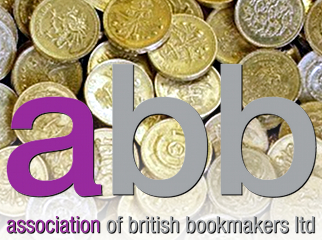 A study by Deloitte accountants says the UK betting industry contributed £2.3b to the country’s gross domestic product and supported around 38,800 jobs in 2011, the most recent year for which data is available. The study, titled The Full Picture: Measuring the Contribution of the British Betting Industry and commissioned by the Association of British Bookmakers (ABB), says that the industry’s economic impact in terms of Gross Value Added is closer to £5b per year.
A study by Deloitte accountants says the UK betting industry contributed £2.3b to the country’s gross domestic product and supported around 38,800 jobs in 2011, the most recent year for which data is available. The study, titled The Full Picture: Measuring the Contribution of the British Betting Industry and commissioned by the Association of British Bookmakers (ABB), says that the industry’s economic impact in terms of Gross Value Added is closer to £5b per year.
The study was released on the same day Britain’s Chancellor of the Exchequer made his big budget speech in Parliament. In case anyone missed the point, ABB chairman Neil Goulden described the betting industry as a “soft target” for Her Majesty’s Treasury. Goulden noted that the industry was smaller than it was at the time of its last review in 2008, yet its contribution to the nation’s tax coffers had remained the same. Goulden said the new 20% Machine Games Duty, which went into effect in February, will cost each betting shop £7k and “risks making these shops unprofitable overnight.”
Controversially, these shops have managed to remain profitable largely on the performance of their fixed-odds betting terminals (FOBTs). In 2007, the machines accounted for about a third of shop revenue. Last year, William Hill earned 48.6% of revenues from its machines, while Ladbrokes copped to earning 50.2% of its bet shop bones from FOBTs. Between 2007 and 2012, Lads’ machine revenue rose 66% while its over-the-counter betting revenue fell 17%. Hills’ machine win rose 54% as OTC bets fell 8.8% over the same period. However, this phenomenal growth has slowed and in some cases flat-lined over the past year, adding weight to Harvard Medical School research that shows the introduction of new gambling options tends to produce a temporary spike in gambling participation that eventually levels off over time.
The anti-FOBT crusade led by the Campaign for Fairer Gambling has called for the maximum machine wager on the high-end Category B2 machines to be reduced from £100 to just £2. Yet at the ABB’s annual general meeting earlier this month, Phil Horne, managing director of Scientific Games’ gaming machine division SG Gaming, said average shop win per week from B2 machines had actually declined from £600 to £500 since 2007, while win per week from lower-stakes machines had tripled over the same period. (Et tu, B2?) As part of its triennial review of FOBT stakes, the UK government is conducting a consultation period that is set to close April 9.
The bet shops’ increasing reliance on FOBTs has lately been used as a method for dismissing applications for new shops on the high street. In February, Newham Council rejected an application by Paddy Power on the grounds that FOBTs would likely constitute more than 50% of the gambling on the shop’s premises (an interpretation of the UK Gambling Commission rules that both Paddy Power and the ABB dispute). This week, betting outfit Coral had an application for a shop in Greenwich rejected by the local council, but this time it had nothing to do with FOBTs. Turns out the Greenwich High Road location Coral wanted to move into was next door to a clinic that treated gambling addicts. You know what? Even we agree with this decision.
